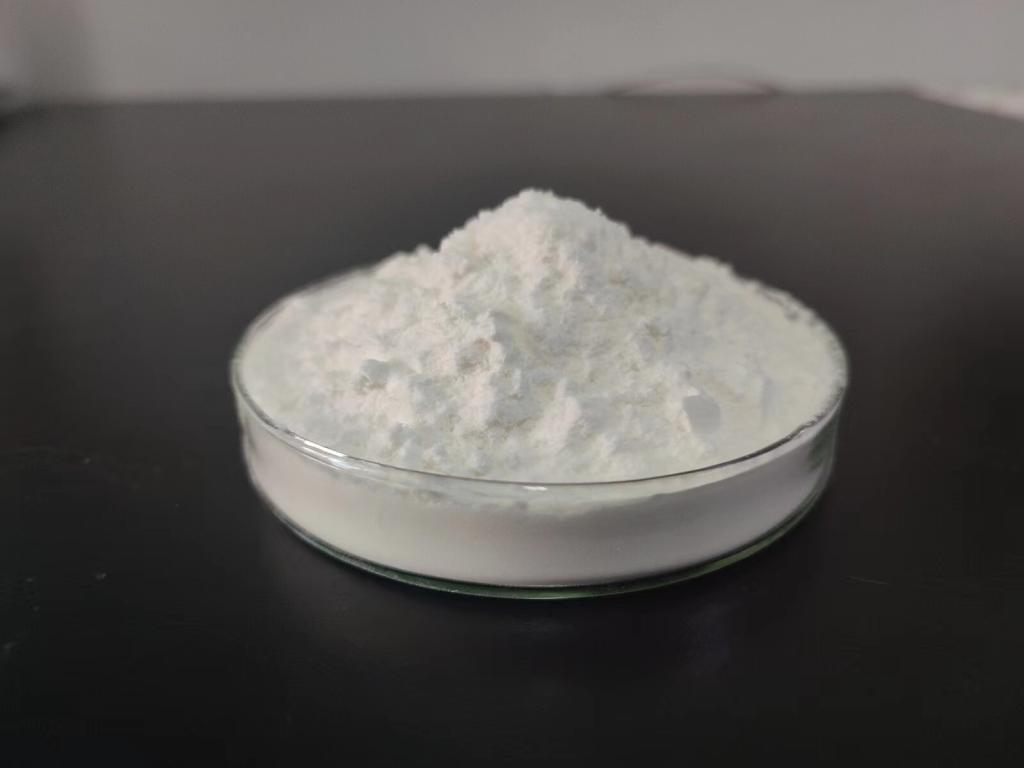Tel:+8618231198596

News
 CONTACT
CONTACT
 CONTACT
CONTACT
- Linkman:Linda Yao
- Tel: +8618231198596
- Email:linda.yao@dcpharma.cn
- Linkman:CHARLES.WANG
- Department:Overseas
- Tel: 0086 0311-85537378 0086 0311-85539701
News
Investigating the Immunostimulatory Effects of ε-Polylysine Hydrochloride in Vaccines.
TIME:2024-07-12
Understanding ε-Polylysine Hydrochloride (ε-PL)
Origin and Characteristics
ε-Polylysine is a natural antimicrobial peptide composed of multiple lysine residues linked by peptide bonds. It is produced by Streptomyces albulus and is widely used as a food preservative due to its antimicrobial properties. ε-PL hydrochloride, the hydrochloride salt form of ε-polylysine, is soluble in water and stable under various conditions, making it suitable for pharmaceutical applications.
Immunostimulatory Properties
Research has demonstrated that ε-PL hydrochloride possesses immunostimulatory properties, capable of modulating immune responses when included as an adjuvant in vaccines. Its ability to activate innate immune cells and enhance antigen presentation makes it a promising candidate for improving vaccine efficacy.
Mechanisms of Immunostimulation
Activation of Innate Immune Cells
ε-PL hydrochloride interacts with pattern recognition receptors (PRRs) on innate immune cells, such as dendritic cells and macrophages. This interaction triggers signaling pathways that lead to the production of cytokines and chemokines, initiating and amplifying immune responses.
Antigen Presentation Enhancement
As an adjuvant, ε-PL hydrochloride facilitates the uptake and processing of antigens by antigen-presenting cells (APCs), such as dendritic cells. This process promotes efficient presentation of antigens to T cells, enhancing the activation of adaptive immune responses.
Modulation of Immune Signaling Pathways
ε-PL hydrochloride can modulate various immune signaling pathways, including NF-κB and MAPK pathways, which are critical for cytokine production and immune cell activation. This modulation contributes to the overall enhancement of immune responses induced by vaccines.
Immunostimulatory Effects in Vaccine Development
Enhanced Antibody Responses
Studies have shown that incorporating ε-PL hydrochloride into vaccines can enhance the production of antigen-specific antibodies. This augmentation is crucial for establishing humoral immunity against pathogens, thereby improving vaccine effectiveness in preventing infections.
Cellular Immune Responses
In addition to antibody responses, ε-PL hydrochloride has been found to stimulate cellular immune responses mediated by T cells. These responses play a vital role in eliminating intracellular pathogens and providing long-term immune memory.
Adjuvant Compatibility
ε-PL hydrochloride exhibits compatibility with a wide range of antigens and vaccine formulations. Its water solubility and stability allow for easy incorporation into vaccine preparations without compromising antigen integrity or vaccine stability.
Current Research Findings
Preclinical Studies
Preclinical studies have demonstrated the immunostimulatory effects of ε-PL hydrochloride in various vaccine formulations. For example, research has shown that ε-PL hydrochloride enhances immune responses against influenza, hepatitis B, and other infectious diseases in animal models.
Clinical Trials
While preclinical studies have provided promising results, clinical trials are essential to evaluate the safety and efficacy of ε-PL hydrochloride-adjuvanted vaccines in humans. Early-phase clinical trials are investigating its potential use in enhancing vaccine responses and improving immunization outcomes.
Safety Profile
ε-PL hydrochloride has a favorable safety profile based on its extensive use as a food preservative and its biocompatibility in pharmaceutical applications. Toxicology studies have indicated minimal adverse effects, supporting its potential for use in vaccines.
Future Directions in Vaccine Development
Optimization of Adjuvant Formulations
Future research aims to optimize ε-PL hydrochloride adjuvant formulations to maximize its immunostimulatory effects while minimizing potential side effects. This includes exploring different dosages, administration routes, and combination strategies with other adjuvants.
Targeted Vaccine Applications
Research is focusing on identifying specific vaccine applications where ε-PL hydrochloride can provide the greatest benefit. This includes vaccines against viral, bacterial, and parasitic infections, as well as therapeutic vaccines for cancer and autoimmune diseases.
Mechanistic Insights
Further investigation into the precise mechanisms by which ε-PL hydrochloride enhances immune responses will deepen our understanding of its immunostimulatory properties. This knowledge will inform the rational design of adjuvanted vaccines and facilitate the development of novel immunization strategies.
Challenges and Considerations
Regulatory Approval
Achieving regulatory approval for ε-PL hydrochloride-adjuvanted vaccines requires rigorous evaluation of safety, efficacy, and manufacturing quality. Compliance with regulatory guidelines is essential to ensure the reliability and acceptance of adjuvanted vaccines in clinical practice.
Immunological Diversity
The effectiveness of adjuvants such as ε-PL hydrochloride may vary among different populations due to genetic, environmental, and immunological factors. Tailoring vaccine formulations to diverse populations is critical for achieving broad efficacy and equitable vaccine distribution.
Public Perception and Acceptance
Educating the public and healthcare professionals about the benefits and safety of adjuvanted vaccines, including those containing ε-PL hydrochloride, is essential for fostering trust and acceptance. Transparent communication about vaccine ingredients and manufacturing processes promotes informed decision-making.
Conclusion
ε-Polylysine hydrochloride represents a promising adjuvant in vaccine development, leveraging its immunostimulatory properties to enhance immune responses against infectious diseases. Through its interactions with innate immune cells and modulation of immune signaling pathways, ε-PL hydrochloride augments both humoral and cellular immunity induced by vaccines. Current research findings support its efficacy in preclinical studies, with ongoing clinical trials poised to validate its safety and effectiveness in human populations. Future research directions include optimizing adjuvant formulations, exploring targeted vaccine applications, and advancing mechanistic insights into its immunological effects. By addressing regulatory considerations and promoting public awareness, ε-PL hydrochloride-adjuvanted vaccines hold potential for improving immunization strategies and combating infectious diseases effectively.
- Tel:+8618231198596
- Whatsapp:18231198596
- Chat With Skype







